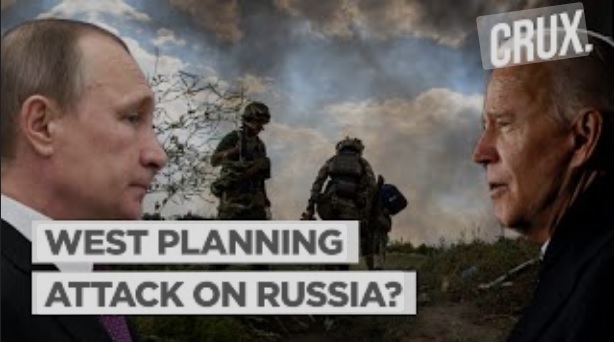
To be sure, the timing of Xi’s state visit in the middle of the war in Ukraine messaged the highest importance that China attaches to the relations with Russia. There is great deliberation in doing so, as both China and Russia are locked in spiralling tensions vis-a-vis the United States, notes M.K. Bhadrakumar, Indian Ambassador and prominent international observer.
There has been a dramatic change of mood in Beijing. The nadir was reached with the boorish behaviour by President Biden in his State of the Union address on February 7 when he went off-script and hysterically shouted, “Name me a world leader who’d change places with Xi Jinping.”
In the Eastern culture, such boorishness is taken as unforgivably scandalous behaviour. In the weeks since the US shot down the Chinese weather balloon and maligned China internationally, Beijing has rebuffed several attempts by the White House seeking telephone conversation for Biden with President Xi.
Beijing has had enough of Biden’s hollow promises to mend ties while on the sly strengthening alliances across the Asia-Pacific region, inserting the NATO into the Asia-Pacific power dynamic and sending additional forces and firepower to places like Guam and the Philippines, apart from single-mindedly striving to weakening China’s economy.
Xi’s Moscow visit became a great occasion for Russia and China to reaffirm their “no limit” partnership and scatter the western attempts since the war broke out in Ukraine to create rift in the Sino-Russian relationship.
To quote Professor Graham Allison at Harvard University, “Along every dimension — personal, economic, military and diplomatic — the undeclared alliance that Xi has built with Russian President Vladimir Putin has become much more consequential than most of the United States’ official alliances today.”
The Ukraine war, paradoxically, is turning out to be a wake-up call — a war that can prevent another world war rather than engender one. China understands that Russia has single-handedly taken on the “collective West” and shown it is more than a match.
This assessment in Beijing cannot escape the West’s attention and will impact the western thinking too for the medium and long term — not only for Eurasia but also the Asia-Pacific.
A recent article in the Global Times some weeks ago by Hu Xijin, the former editor-in-chief of the Chinese Communist Party Central Committee daily highlighted the ‘big picture.’ Hu wrote that the war in Ukraine “has evolved into a war of attrition between Russia and the West… While NATO is supposed to be much stronger than Russia, the situation on the ground doesn’t appear so, which is causing anxiety in the West.”
Hu drew some stunning conclusions: “The US and the West have found it much more difficult than expected to defeat Russia. They know that China has not provided military aid to Russia, and the question that haunts them is: if Russia alone is already so difficult to deal with, what if China really starts to provide military aid to Russia, using its massive industrial capabilities for the Russian military? Would the situation on the Ukrainian battlefield fundamentally change? Furthermore, Russia alone can already confront the entire West in Ukraine. If they really force China and Russia to join hands, what changes will there be in the world’s military situation?”
Isn’t the notion prevalent in the US and Europe that the Russia-China alliance is an alliance of unequals is itself a self-serving western fallacy? Hu is spot on: Although China’s comprehensive strength is still short of that of the US, in combination with Russia, there is a paradigm shift in the balance and the US is no longer entitled to act as it pleases.
It is the common concern of Russia and China that the world order must return to an international system with the UN at its core and a world order based on international law. There is no question that the two countries’ strategy is to overturn the “rules-based order” dominated by the US and return to an international order centred on the UN.
Make no mistake that this is not about removing the US as the boss and replacing it with China, but about effectively checking the US from bullying smaller, weaker states, and thereby ushering in a new international order with primacy on peaceful development and political correctness that overrides all ideological differences, stresses M.K. Bhadrakumar.
read more in our Telegram-channel https://t.me/The_International_Affairs

 11:57 03.04.2023 •
11:57 03.04.2023 •






















